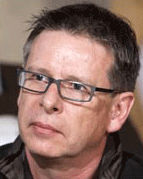

Recently, your company has undergone an important structural change by joining hands with SGS. How do you see this decision working in the interest of EHS in Textile and allied industry?
The collaboration with SGS enables us to comply with the huge demand for bluesign® certified products worldwide. Our Members (Brands and Retailers) especially from North America encouraged us to do this step in order to be able to operate globally.
So, now, working hand in glove with SGS, what all would be revised activities and services of Bluesign in the arena of textile and clothing?
SGS will support bluesign technologies regarding infrastructure, language/writing/cultural challenges in Asia, furthermore SGS will do lab analytics and will support us in the establishment of bluesign® offices (e.g. in Asia). However bluesign technologies will stay independent.
Being associated with the industry since a decade for the good reasons of environment and quality standards, how do you find this industry progressing currently?
We state some progress in this industry, but often people think that eco efficient products must be more expensive and compromises in design, function or quality have to be done. This is a misunderstanding: if a production is intelligent and based on a holistic approach as the bluesign® concept provides, then products must not be more expensive, they can be even more favorable.
How would you advocate ‘EHS compliance under CSR’ as an effective business strategy?
This is a holistic approach and highly appreciated and recommended. We request from our system partner to respect the ten principles of the UN global compact (www.unglobalcompact.org).
What are your comments on REACH? How do you see the spirit of compliance in the industry on this?
REACH is a good approach in the right direction - unfortunately it is only focused on Europe. A worldwide solution to manage the issues that have been worked out in the EU-Legislation would make sense and as a consequence all countries would have to follow the same direction.
Besides ecological safety, what are advantages of Eco friendly products? From the producer’s point of view where the consumer is a god, do you think there is enough awareness on this aspect amongst end users?
The bluesign standard exclude substances, that are potentially hazardous to the environment and hence also to the human health. The bluesign concept is an intelligent input stream management and excludes potentially hazardous substances at the very beginning of a process. Therefore not only the environment but also workers in the mill and the end consumers are protected. Our industry has a big impact to the environment from a resource, energy or chemical point of view. But also the end-of-pipe situation has to be considered as huge amounts of waste-water, air-emissions are involved in typical textile processes. With the holistic approach of the bluesign® concept we can offer a state of the art solution for the textile and also affiliated industry.
For sure – the consumer is more and more aware of the environment as a value and we see an increasing demand for textile products that are environmentally friendly, pose no health hazards, and conserve resources to the greatest possible extent. This demand is originating as a result of strict legislation, and meeting it will be crucial for future success. The bluesign® standard is the most efficient way to guarantee compliance with the new requirements, without compromising functionality, quality or design.
We state an increasing demand for the bluesign® standard not only from Outdoor brands but also from mills. But till today the biggest focus is on material selection many times combined with a green marketing approach. But this is only a little part of the truth regarding a sustainable product. Mostly the steps following to the material selection (e.g. Organic Cotton, Recycled Polyester) aren’t mentioned and for brands and consumer this is often a “black-box”. Consumer Safety issues, resource consumption, chemicals/auxiliaries/dyestuffs that are used to get the final product is the most critical step regarding environment and sustainability.
Can you please apprise us about ‘bluefinder’?
bluefinder™ is a database with eco-efficient and state of the art components that are fulfilling the bluesign® standard. This easy tool allows the user to find in a short time alternatives for the production process. The bluefinder™ is a growing online database specifically designed for textile manufacturers that contains “bluesign® approved” components such as auxiliaries, dyestuffs and finishing agents. It’s a simple and practicable tool which assists manufacturers in the search for innovative and effective textile chemicals. It is easy-to-use and contains all the relevant information to select the most appropriate components for the manufacturing process, the end-product and the environment.
---------------------------
DISCLAIMER: All views and opinions expressed in this column are solely of the interviewee, and they do not reflect in any way the opinion of Fibre2Fashion.com.